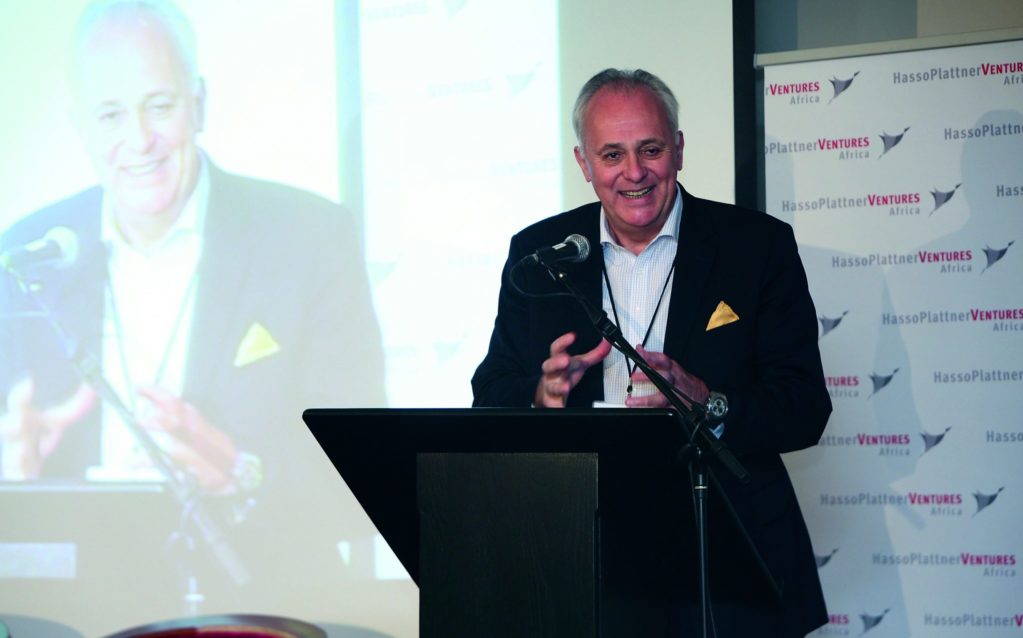Lord Malloch-Brown has been described as a rare statesman and a public intellectual. He is a man with a passion for Africa and is the former United Nations Deputy Secretary General and World Bank vice chairman, who has also held the office of Minister of State for Africa, Asia and was the British Prime Minister in Gordon Brown’s cabinet.
A former journalist for The Economist, Lord Malloch-Brown’s astute observations concerning international relations, macro-economics and the role of emerging markets were the platform for his keynote address at the Hasso Plattner Ventures Capital Africa Conference 2012, in Stellenbosch, near Cape Town, a conference aimed at matching investment opportunities in Africa with venture capital.
When asked whether the global economy is heading south, Lord Malloch-Brown’s answer painted a realistic picture, with hope for emerging economies.
“Its going to be a year of troubled growth, emerging markets will continue to grow but less than they did last year, with advanced economies growing at 1.5%. The other understanding of the word ‘south’ is that the engine of the global economy is moving inextricably southwards. You see it in the growing share of GDP that emerging economies represent.”
Chinese growth figures in 1990 comprised 2% of global GDP; now it comprises 8% of global GDP, making it the largest economy in the world. In many ways the Chinese economy is the standard bearer for emerging economies.
Loading...
For emerging economies, according to Lord Malloch-Brown, the future looks bright, especially in the medium to long-term, with a strong trend towards high rates of urbanization, growth in middle-class consumer spending and increased mechanization of agriculture.
But against this buoyant backdrop lies the reality that internally, social instability will remain a problem, with increased inequality and political unrest.
“You will see potential corruption around the controlling of resources, commercial land and also mineral and energy resources. Scarcity of resources will also play a big role, especially around water. These are some of the real challenges that emerging economies will need to face and address head on.”
With investors looking for increased opportunity in emerging markets, the question is, where is the smart money heading?
“Smart money is all over the place at the moment; assets in Asia are overpriced, in Europe prices are overvalued, coupled with economic instability in the Eurozone. Latin America is a strangely overlooked market, and then you have Africa which is a hugely attractive market. But the difficulty in Africa lies in acquisitions. You really need to buy or build a business that is Pan African. With the exception of South Africa and Nigeria, most African markets are not big enough to sustain a major foreign investment.”
Investing in Africa according to Lord Malloch-Brown is all about finding a sound business model that can work across the continent.
So far, investor interest in African assets has leant towards the financial services sector, telecoms and more recently, retail. When it comes to investing in Africa, the devil is in the detail says Lord Malloch-Brown.
“When investing in Africa you need to ask yourself whether the asset is a well-valued, well-run business in its own market, and whether you can see the business rolling out into the continent more widely. These are the critical points to investing in emerging economies, especially in Africa.”
According to Lord Malloch-Brown, it’s all about operating and opening up capital to bigger African markets.
Lord Malloch-Brown’s career at the helm of some of the world’s leading international organizations, has given him a birds-eye view of development, matched with an understanding of the challenges of grass roots implementation. He also believes fostering entrepreneurship in Africa is the only way to build the continent.
“I’m a big enthusiast of the continent; I chair a rice-growing and producing business in Ghana called GADCO which has very quickly positioned itself as the major rice producer in Ghana. The business follows a very clear triple bottom line. We make money, we create jobs and aim to be sustainable.”
Africa, according to Malloch-Brown, is an extraordinary growth story. In his current role as chairman of FTI Consulting, an international investment consultancy, Malloch-Brown aims to help channel private equity funds into the continent’s growth industries.
“Fostering entrepreneurship in Africa is not just about inculcating a culture of ‘win’,” states Lord Malloch-Brown. “It’s also important to note cultural differences that play a role in people’s ability and agility to pick up the skill of enterprise and risk taking.”
The prominence of the public sector as a major employer on the continent has had a dampening effect on the spark of entrepreneurship, but what has been an outstanding source of hope for the future of African entrepreneurs, is the quality and level of business school education found on the continent.
“What South Africa has in way of nurturing entrepreneurship are business schools and tertiary institutions that teach students to become enterprising—part entrepreneur, part social activists. That’s the beauty of entrepreneurs in Africa, you can’t be one without having a social conscience, and that’s where the real change for the continent lies.”
On whether one should be investing in Africa, Lord Malloch-Brown’s answer was a resounding yes.
“The short-term choice is financial services and communications, with the massive opportunity of the unbanked. In the medium-term there are going to be two revolutions across the continent, one in agricultural productivity and the other in increased urbanization. These two, will create astonishing medium-term opportunities.”
With strong investment returns, Africa continues to be a continent with immense potential and the smart money in the world appears to be heading south.
Loading...
